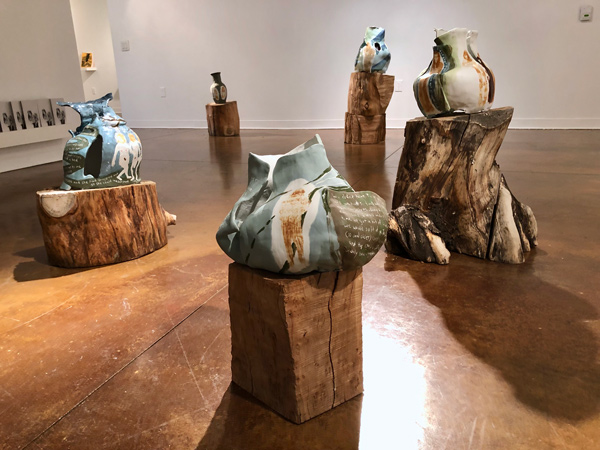For over a decade, Los Angeles artist Cathy Akers has tenaciously researched two experimental open land communes in Northern California—Morningstar and Wheeler’s Ranches, each historically located in West Sonoma County. Through the years the artist has built relationships with former commune residents, collecting stories about both their utopian aspirations as well as the dysfunctional implications of these back-to-the-land communities. Akers animates archival photographs and interview texts to create her melancholic yet playful ceramic and photographic installations.
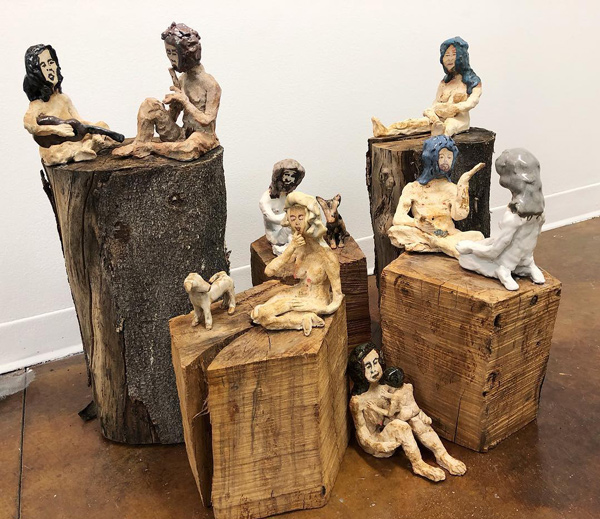
Cathy Akers, “A Utopia for Some: Morningstar and Wheeler’s Ranches Reconsidered,” Pitzer College Art Galleries, installation view.
A Utopia for Some: Morningstar and Wheeler’s Ranches Reconsidered at Pitzer College is the largest of two shows Akers has up through March. The main wall displays hand-painted timelines for both communes, including portraits of key figures, starting with Lou Gottlieb in 1965, owner of Morningstar. Depicted are noteworthy events such as Time Magazine’s July 7, 1967 issue, The Hippies: Philosophy of A Subculture, which included a feature on Morningstar. Also mentioned was the 1969 Halloween FBI raid at Wheeler’s Ranch during which founder Bill Wheeler was arrested. A grouping of small claymation-like fired ceramic nude figures populates wood stumps, with one figure playing guitar and the others happily communing with children and dogs. Archival photographic stills from the communes play on a video loop in an adjacent darkened room. Large glazed ceramic vessels with photocopy transfers of commune residents and sgraffito quotes lie seemingly broken, perched on cut tree logs.
“Since we didn’t have TV or go to school, we had to find ways to entertain ourselves. Any drug that was available I was willing to try. Anytime we got a hit of acid or two, we would split it up. The big kids could have half a hit and the little kids could only have a quarter hit.”
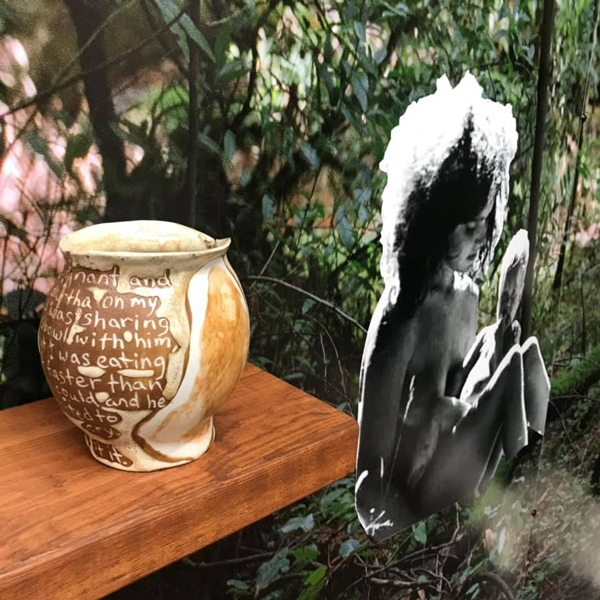
Cathy Akers, “Stories from the Revolution,” Elephant, installation view.
Cathy Akers: Stories from the Revolution at Elephant in Glassell Park, also up through March, is a small room with three full-wall photo murals and ceramic vessels resting on wall shelves. In the corner, one large vessel sits precariously placed on a vertical log. This smaller immersive space offers a vicarious moment placed in the land—a clothing-optional existence and pilgrimage site for the Diggers who traveled back and forth between Haight-Ashbury and either Sebastopol and Bodega during the Hippie Revolution.
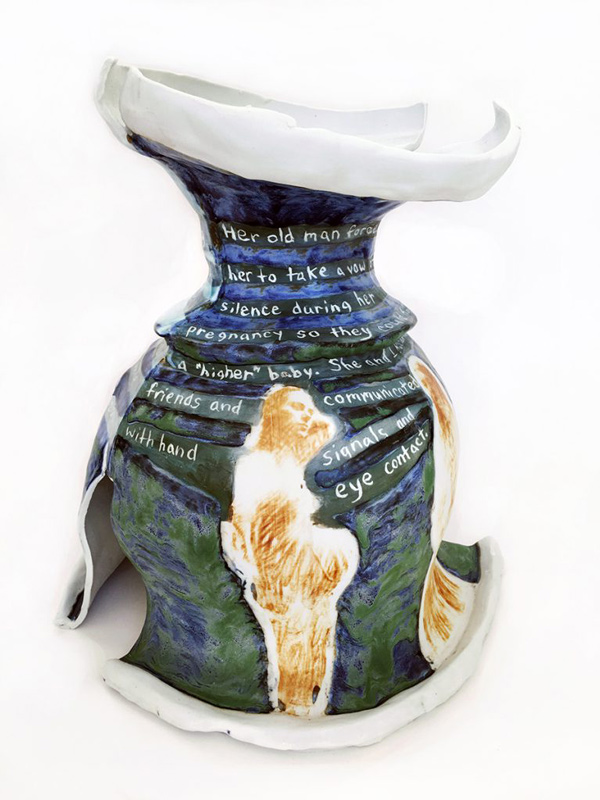
Cathy Akers, Expectant (2018). Porcelain, photocopy transfer, underglaze, glaze.
Akers, who was born in 1973, the year both communes were shut down, sets out to examine aspects of human nature that desire an ideal society. In the course of her research she has found that the women and children who lived this voluntary primitivism also endured physical and emotional hardships that were often downplayed in the name of freedom. In a zine created by Akers, Bill Wheeler tells a story about a short-term commune resident known as “Oak Grove David” who created a group on his land where women were completely dominated and “slept with men on a rotating basis.” Wheeler also revealed that David’s “followers were encouraged to sever ties with old friends and relatives.”
With these two shows Akers’ perspective on hippie culture evolves alongside of her development with narrative forms in ceramics and photography. She delivers her message with a raw but knowing home grown aesthetic.
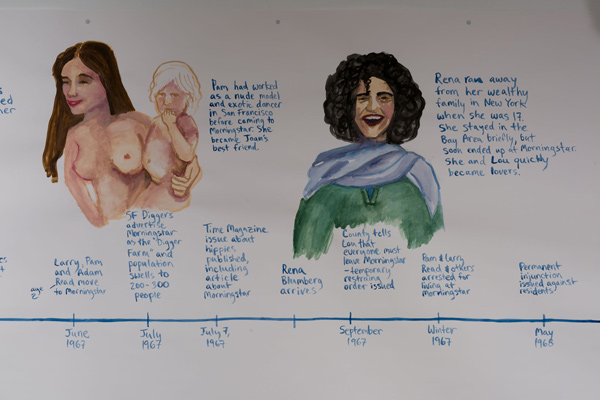
Cathy Akers, “A Utopia for Some: Morningstar and Wheeler’s Ranches Reconsidered,” Pitzer College Art Galleries, installation view.
A high quality 40-page Utopia for Some zine is available for free at both locations.
Cathy Akers, “A Utopia for Some: Morningstar and Wheeler’s Ranches Reconsidered,” February 2 – March 28, 2019, at Pitzer College Art Galleries, 1050 N. Mills Avenue, Claremont, CA 91711. www.pitzer.edu/galleries
Feminisms, Motherhood, and the Counterculture, a panel discussion with Cathy Akers, Micol Hebron, Olga Koumoundouros, Claudia Parducci and Astri Swendsrud, at Pitzer College Broad Performance Space, Wednesday, March 27, 2019, at 1:30 PM.
Cathy Akers, “Stories from the Revolution,” March 9 – 30, 2019, at Elephant, 3325 Division Street, Los Angeles, CA 90065. elephantartspace.blogspot.com

